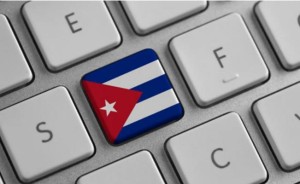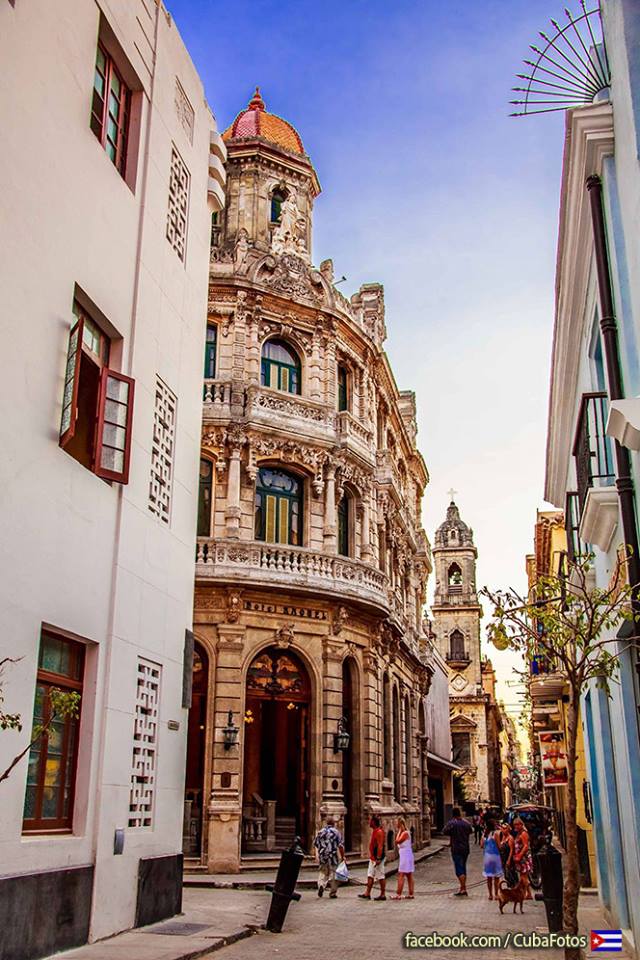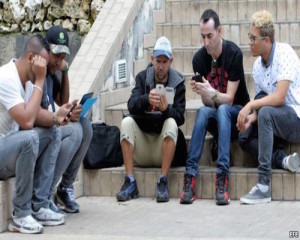OBAMA ANNOUNCES TO CUBA GOOGLE WILL EXTEND INTERNET TO THE ISLAND.
The US strategy in the island is pointing to new technologies and private sector.
Google aspires to be the next big news in Cuba. The Internet giant has started landing on the island of hand President Barack Obama, who has made American business its main icebreaker in the normalization of bilateral relations.
Obama had advanced in a television interview an agreement on Google to “begin to establish more access wireless and broadband” on the island. He described as “necessary for Cuba between economically in the twenty-first century” and that Cubans have “greater voice”. The agreement actually is still not as ambitious, then he pointed the company, however assured that aspires to offer such services at some point also in Cuba. “We are exploring further to increase and improve access to Internet possibilities,” said Google, but these negotiations are still at a “preliminary stage”.
For now, Google is partnering with the Organic Romerillo Museum in Havana, which will allow, the company said, “surf the web and find information to those people for whom Internet access is scarce”.
The White House has two economic priorities in Cuba. On the one hand, support the self-employed to boost growing private sector of the island, which already employs a quarter of the workforce. And also promote new technologies, with which the United States hopes the Caribbean country open once-and so irreversibly the world, as requested during an official visit nearly two decades ago Pope John Paul II.
“The Cuban economy is beginning to change,” said Obama to participate in a meeting with Cuban self-employed entrepreneurs, the “self-employed”, and entrepreneurs, who spent several hours exchanging ideas, questions and problems. But for them to thrive, “we need to bring new technologies to Cuba,” said the US president.
The expansion of the Internet in Cuba is still minimal. Only between 5% and 15% of the population has connection at home or at work. While those who know the island well warn that this figure can be misleading. Cubans, accustomed to having to “solve” or “invent” for decades how to address the lack of resources, are masters at getting access to information from the network but do not have a direct connection.
Obama has invited a small but significant delegation of Americans to travel with him on the first visit by a US president in 88 years to Cuba entrepreneurs.
The list of senior managers in Havana is a statement of intent: are Daniel Schulman, president of the web of payments and transfers PayPal and Julie Hanna, director of Kiva, a platform to contribute small grants to fund loan applications for small business or social projects. He also travels Brian Chesky, founder of Airbnb, dedicated to rent private, one of the first digital platforms that landed in Cuba, and meets both the goal of promoting the connectivity of the island as support tourism, the sector with more capacity – and necessity of investment and expansion.
El Pais/Silvia Ayuso, Havana / Internet Photos / Excerpts / TheCubanHistory.com
THE CUBAN HISTORY, HOLLYWOOD.
Arnoldo Varona, Editor.
CUBA PHOTOS.
OBAMA ANUNCIA A CUBA GOOGLE EXTIENDE INTERNET A LA ISLA.
La estrategia de Estados Unidos en la isla apunta a las nuevas tecnologías y sector privado.
Google aspira a ser la próxima gran noticia en Cuba. El gigante de Internet ha iniciado su desembarco en la isla de la mano del presidente Barack Obama, que ha hecho del empresariado estadounidense su principal rompehielos en la normalización de relaciones bilaterales.
Obama había adelantado en una entrevista televisiva un acuerdo de Google para “empezar a establecer más acceso wifi y de banda ancha” en la isla. Lo calificó como algo “necesario para que Cuba entre económicamente en el siglo XXI” y para que los cubanos tengan “más voz”. El acuerdo en realidad no es todavía tan ambicioso, puntualizó posteriormente la compañía, que sin embargo aseguró que aspira a poder ofrecer esos servicios en algún momento también en Cuba. “Estamos explorando posibilidades adicionales para aumentar y mejorar el acceso a Internet”, aseguró Google, aunque estas negociaciones se encuentran en una “etapa preliminar” todavía.
Por el momento, Google se ha asociado con el Museo Orgánico de Romerillo, en La Habana, que permitirá, dijo la compañía, “navegar por la web y encontrar información a aquellas personas para quienes el acceso a Internet es escaso”.
La Casa Blanca tiene dos prioridades económicas en Cuba. De un lado, apoyar a los trabajadores autónomos para impulsar el creciente sector privado de la isla, que ya emplea a una cuarta parte de la fuerza laboral. Y también impulsar las nuevas tecnologías, con las que Estados Unidos espera que el país caribeño se abra de una vez —y de forma irreversible— al mundo, como pidió durante una visita oficial hace ya casi dos décadas el papa Juan Pablo II.
“La economía cubana está empezando a cambiar”, aseveró Obama al participar en un encuentro con emprendedores autónomos cubanos, los “cuentapropistas”, y empresarios estadounidenses, que estuvieron durante varias horas intercambiando ideas, dudas y problemas. Pero para que puedan prosperar, “tenemos que traer las nuevas tecnologías a Cuba”, subrayó el presidente estadounidense.
La expansión de Internet en Cuba es todavía mínima. Solo entre un 5% y un 15% de la población cuenta con conexión en casa o en el trabajo. Aunque los que conocen bien la isla avisan de que esa cifra puede resultar engañosa. Los cubanos, acostumbrados a tener que “resolver” o “inventar” durante décadas cómo solucionar la falta de recursos, son maestros a la hora de conseguir acceso a la información de la Red aunque no cuenten con una conexión directa.
Obama ha invitado a una pequeña pero significativa delegación de empresarios estadounidenses a viajar con él en la primera visita de un presidente norteamericano a Cuba en 88 años.
La lista de los altos directivos en La Habana es toda una declaración de intenciones: están Daniel Schulman, presidente de la web de pagos y transferencias PayPal y Julie Hanna, directora de Kiva, una plataforma que permite contribuir con pequeñas donaciones a financiar solicitudes de préstamos para pequeños negocios o proyectos sociales. También viaja Brian Chesky, fundador de Airbnb, dedicada al alquiler entre particulares, una de las primeras plataformas digitales que desembarcó en Cuba, y que cumple tanto la meta de impulsar la conectividad de la isla como apoyar el turismo, el sector con más capacidad —y necesidad— de inversión y expansión.
El País/ Silvia Ayuso, La Habana/Internet Photos/Excerpts/TheCubanHistory.com
THE CUBAN HISTORY, HOLLYWOOD.
Arnoldo Varona, Editor.



 OBAMA ANNOUNCES TO CUBA Google will extend Internet to the Island. + OBAMA ANUNCIA A CUBA Google extiende Internet a la Isla.
OBAMA ANNOUNCES TO CUBA Google will extend Internet to the Island. + OBAMA ANUNCIA A CUBA Google extiende Internet a la Isla.


